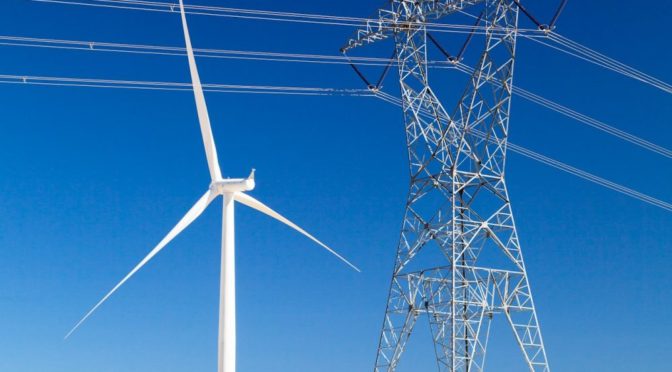The American Wind Energy Association (AWEA) today praised the Federal Energy Regulatory Commission (FERC) for its unanimous decision to terminate the proceeding it had opened to address the Department of Energy’s Proposed Rule on Grid Reliability and Resilience Pricing, and instead initiate a new proceeding to evaluate the resilience of America’s bulk electric power system.
“Every American shares an interest in preserving and strengthening the U.S. power grid that keeps our lights on and powers our economy,” said Tom Kiernan, CEO of AWEA. “We’re encouraged by FERC’s action because it recognizes that no past or planned power plant retirements threaten grid resilience. This action starts a thorough look at how to assess the grid’s resilience, and how FERC and the RTOs might apply further market-based approaches to protect it.”
“In particular, we’re glad to see FERC’s focus on wholesale electric market rules, transmission planning, and standards set by the North American Electric Reliability Corporation. Those are all key to ensuring long-term grid resiliency,” Kiernan said. “Wind power plays an important and growing role in diversifying the grid’s sources of energy. Wind turbines can provide important grid services that make our electricity supply more reliable and resilient against extreme events. We look forward to continuing to work with FERC, NERC, grid operators, and the Department of Energy to find the best path to the grid of the future.”
On Monday afternoon, FERC terminated the Grid Reliability and Resilience Pricing proceeding initiated in September by DOE’s submittal of the Proposed Rule under its section 403 authority. The Commission concurrently announced it opened a new proceeding evaluating the resilience of the bulk power system in regions operated by regional transmission organizations (RTOs) and independent service operators (ISOs). In the new proceeding, FERC directs RTOs/ISOs to submit information to the Commission within 60 days followed by 30 days for public reply comments. Specifically, FERC requests that each RTO/ISO provide: (1) comment on FERC’s proposed definition of “resilience;” (2) an explanation of how they assess threats to resilience, including physical and cyber attacks, accidents, extended fuel supply disruptions, and extreme weather events; and (3) an explanation of existing or additional market based approaches RTOs/ISOs rely on to mitigate risks to resilience.
The FERC order says (p. 5): “The Commission’s support of competitive wholesale electricity markets has been grounded in the substantial and well-documented economic benefits that these markets provide to consumers. The Commission’s endorsement of markets does not conflict with its oversight of reliability, and the Commission has been able to focus on both without compromising its commitment to either.”
Last night, AWEA joined other energy associations in releasing the following statement: “We are very encouraged by the action taken by FERC today. We look forward to engaging with FERC, DOE, and grid operators in an examination of what resilience of the electric power system means and requires, and to demonstrating the contribution of our industries to ensuring reliable power for all.” Groups joining AWEA in the statement included Advanced Energy Economy, American Council on Renewable Energy, American Petroleum Institute, Electric Power Supply Association, Energy Storage Association, Interstate Natural Gas Association of America, Natural Gas Supply Association, and Solar Energy Industries Association.


